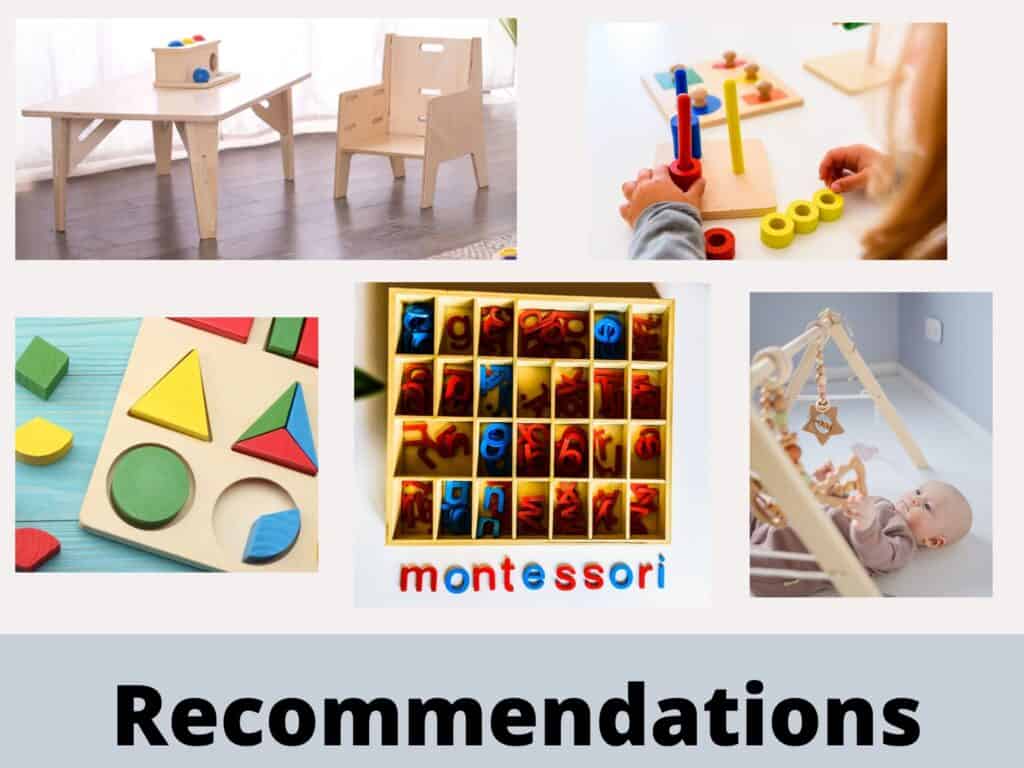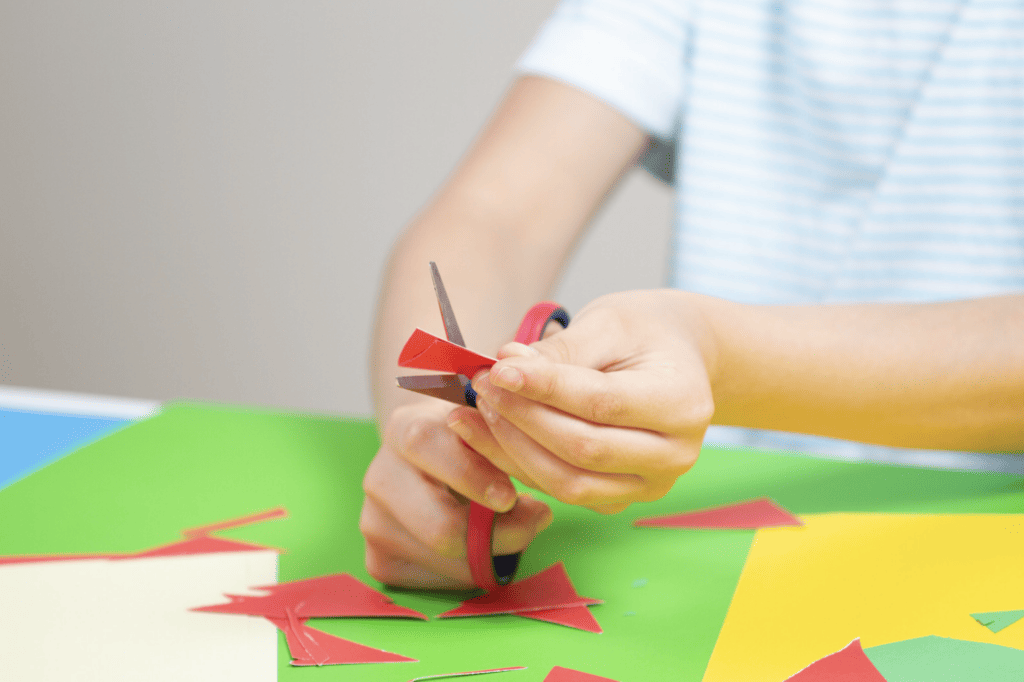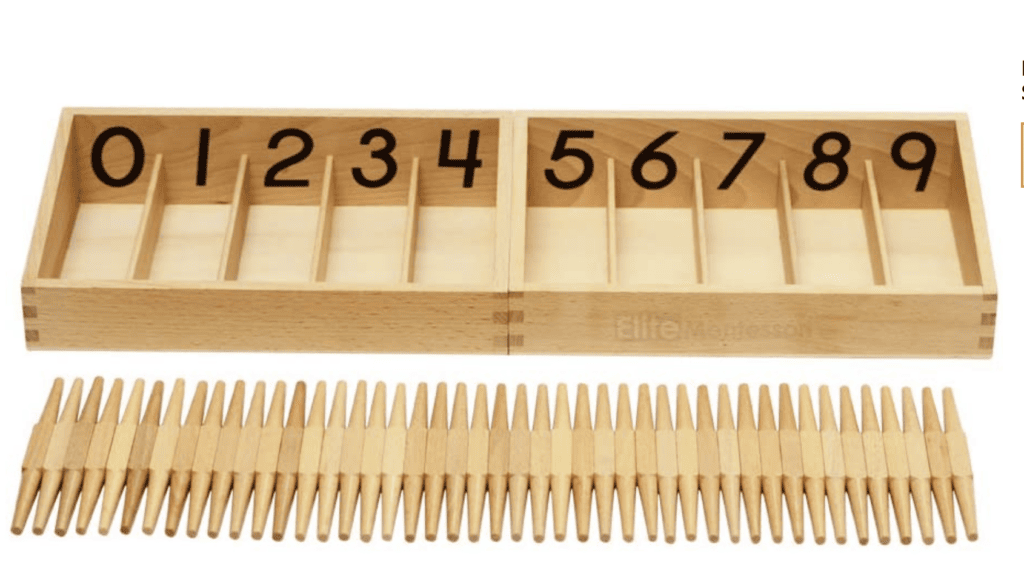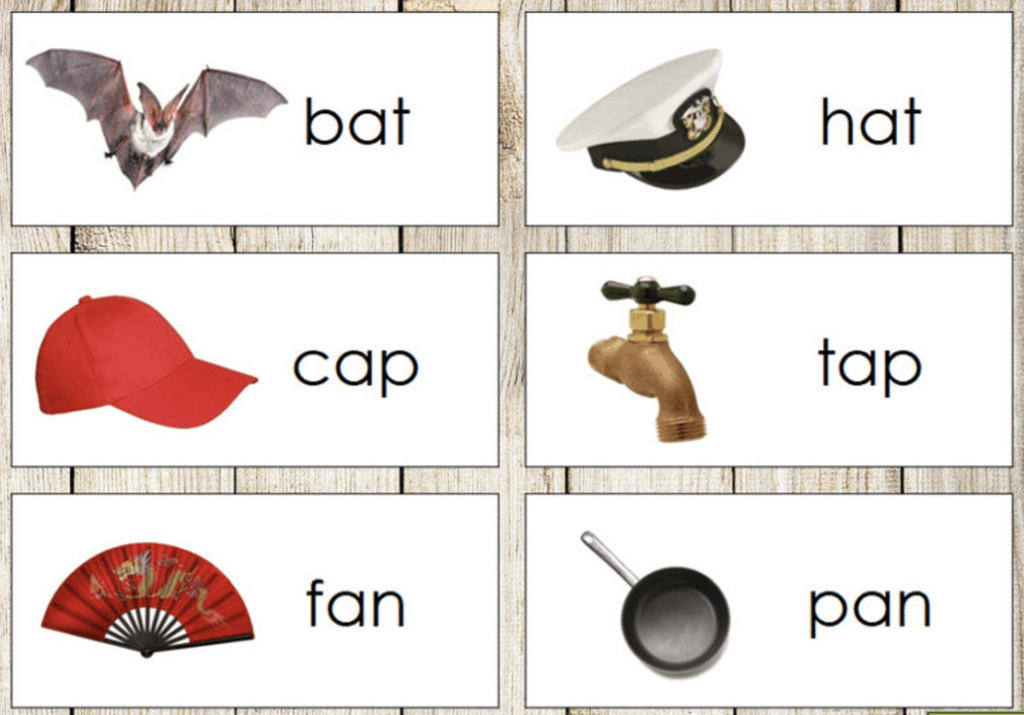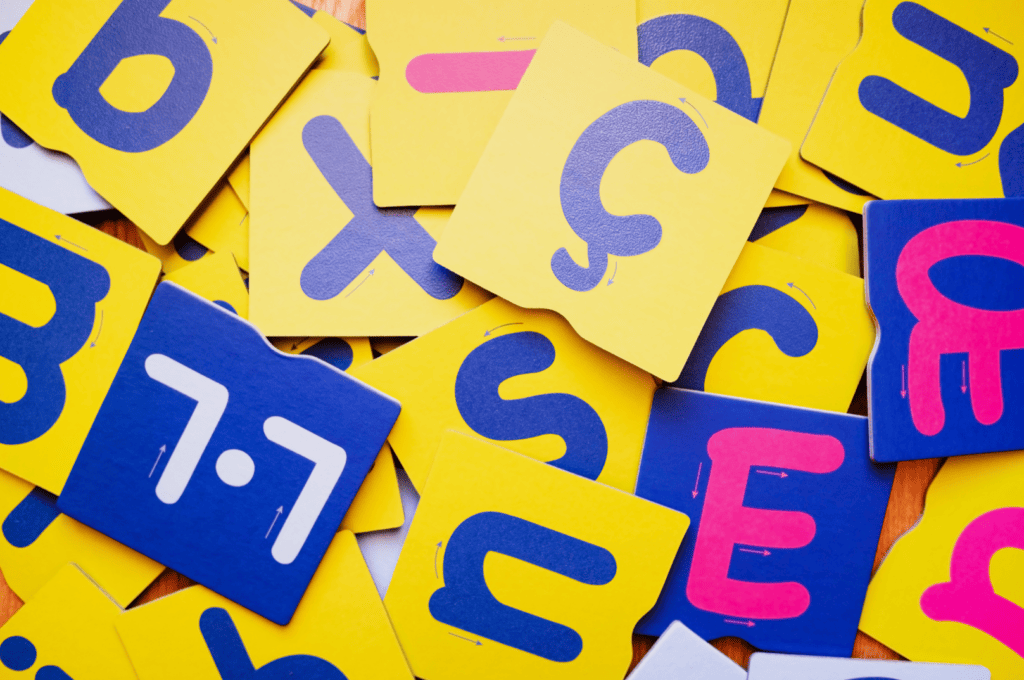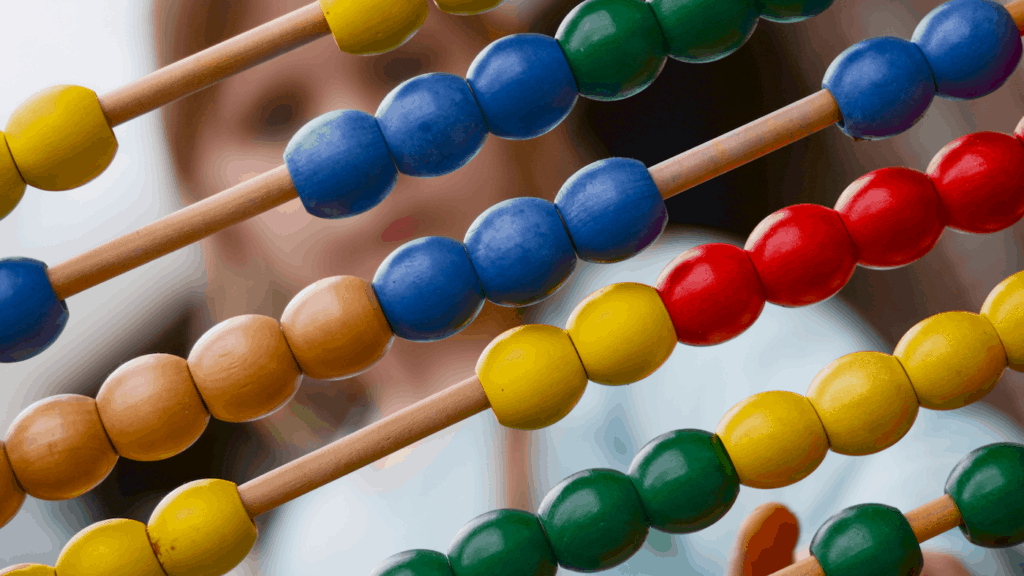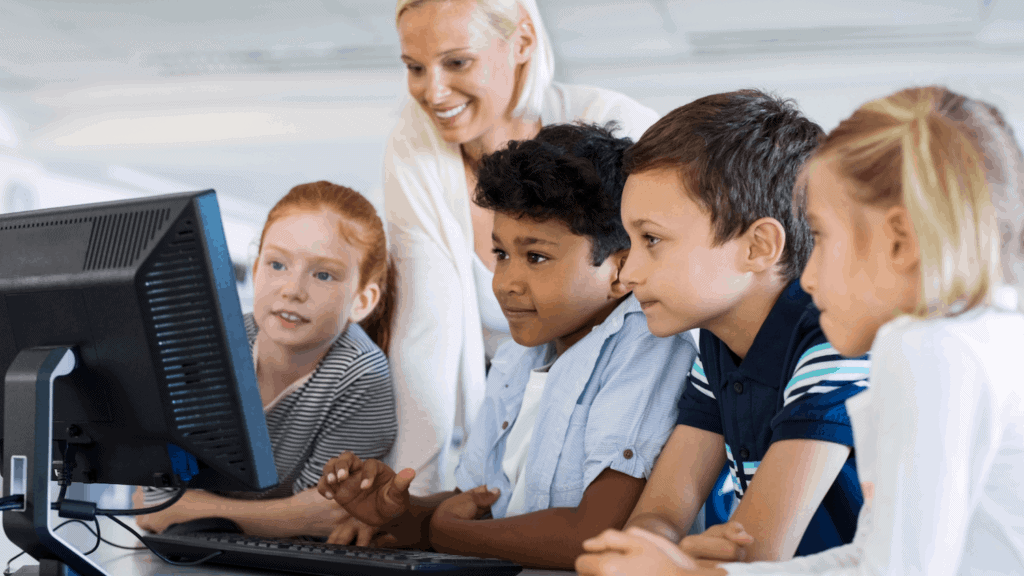Making decisions that can shape the future of your children is stressful. You want only the best for them and desire to give them the opportunities that you may have not had. Education decisions definitely fall into this category.
For me, choosing the type of preschool education for Jake was has been difficult. I spent weeks researching the possible options, their pros and cons, and realized that a
Then…
Sadly I found that the preschools near my neighborhood were Montessori in name only. So, until we move closer to the target pre-school, my wife and I decided to embed Montessori principles into our home.
I’m going to share with you the outcomes of my own objective research into the pros and cons of this respected education method. Now, I did do a lot of research so this article is lengthy, if you don’t have the time to read it all here is the gist of it.
There is also a guide for parents who might be choosing between
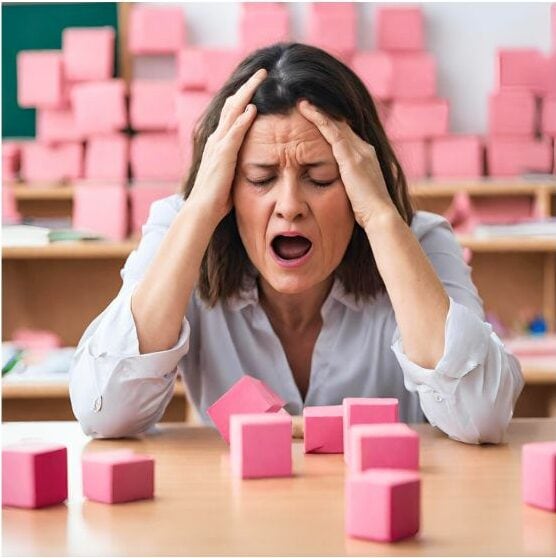
Key Takeaway:
Whilst there are some inconsistencies in research findings, the benefits of Montessori principles for younger kids has significant research weight behind it.
Criticisms of limited opportunities for collaboration, are a misunderstanding because collaboration is a natural result of mixed age groups, free ranging exploration of learning opportunities and general dynamics of the children’s house.
Inconsistencies in school and teacher quality is a challenge not only for Montessori schools but also for traditional schools, so as part of your reviews do ensure that you enquire about qualifications and how aligned their curriculum is to the original principles.
And sadly cost and accessibility issues can prevent children who would benefit greatly from a
However, these concerns are not universally shared, and many families find great success with the
Ultimately, choosing the right education for your child needs to take into account their individual needs, learning style, and parental preferences.
Positive Effects of Montessori on Children
I found that the impact of the
Promoting Independence and Confidence
One major benefit attributed to the
One of the core principles of the
In a Montessori classroom, rather than relying on passive learning through lectures or predetermined lessons, children actively engage with hands-on materials. Choosing their activities from a variety of materials provided. They are given guidance by teachers but are largely responsible for their own learning journey.
This approach fosters a sense of independence and self-confidence in children as they learn to make decisions and take ownership of their education.
They have the freedom to explore and work on tasks that align with their interests and developmental stage. This gives them a sense of ownership over their education, fostering a natural curiosity and love for learning.
The self-paced nature of learning and attention to individual needs provides the additional support and scaffolding that can be of great benefit to children with special needs.
They may select a task such as pouring water from one container to another, engaging in hands-on exploration and problem-solving. The child learns practical life skills AND gains confidence in their abilities to complete tasks independently, through this process.
“I think the biggest long-term impact I have seen is that Montessorians remain perpetually curious about the people and the world around them, seeing learning as an enjoyable life-long process rather than a burden that ends when a school bell rings.” Karen Ricks, the founder of an international
By providing opportunities for self-directed learning and emphasizing personal responsibility,
While the
Suitability for Preschool-Aged Children
When it comes to the Montessori method, my research found that the
After all, Dr. Maria Montessori developed this educational approach with young learners in mind, emphasizing the importance of providing them with a prepared environment that supports their developmental needs.
This tailored approach ensures that each child’s needs are met, allowing them to learn at their own pace without feeling pressured or overwhelmed.
Imagine a classroom filled with curious and energetic three to six-year-olds…
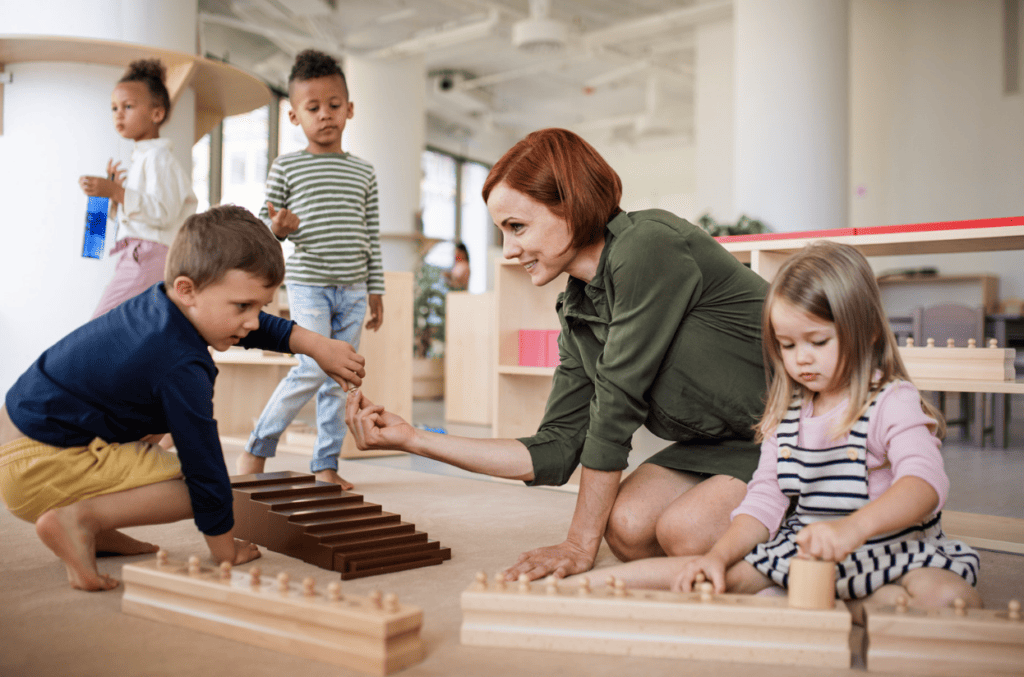
In a traditional setting, structured activities and rote learning might be the norm.
However, in a
Montessori classrooms are carefully designed to foster independence and encourage exploration. Materials are arranged on low shelves within easy reach of young children, enabling them to choose what they want to work on (developing their decision-making skills).
The ‘free range’ nature of the classroom and select learning materials at their own pace allows children to naturally develop concentration, coordination, and a sense of personal responsibility.
Through hands-on learning experiences, children develop not only academic knowledge but also practical life skills such as pouring water, buttoning clothes, or preparing snacks.
This emphasis on both intellectual and practical development lays a strong foundation for future learning.
Additionally, the
This multi-age interaction enhances communication skills, empathy, and social understanding.
Finally research has shown that this child-centered approach promotes cognitive development, social skills, and emotional intelligence among preschoolers.
According to a 2006 study published in the journal Science, by the end of kindergarten,
Now, while the
As children grow older, they may need more structure and guidance. Transitioning from the self-paced and individualized learning environment of
Let’s take a look at some of the negative aspects that critics often raise.
Negative Aspects of the Montessori Method
While the
Inconsistency in Research Findings.
One common criticism of the
Some studies have shown very positive outcomes and benefits for
A study by Angeline Lillard at the University of Virginia published in 2017,
While others have identified similar or even worse academic performance compared to students in traditional educational settings. As an example, A study from 2018 indicated that transitioning
This inconsistency raises questions about the true impact of later years
However a 2023 systematic review of existing studies (meta-analysis) identified that
Limited Opportunities for Collaboration?
Critics also argue that the
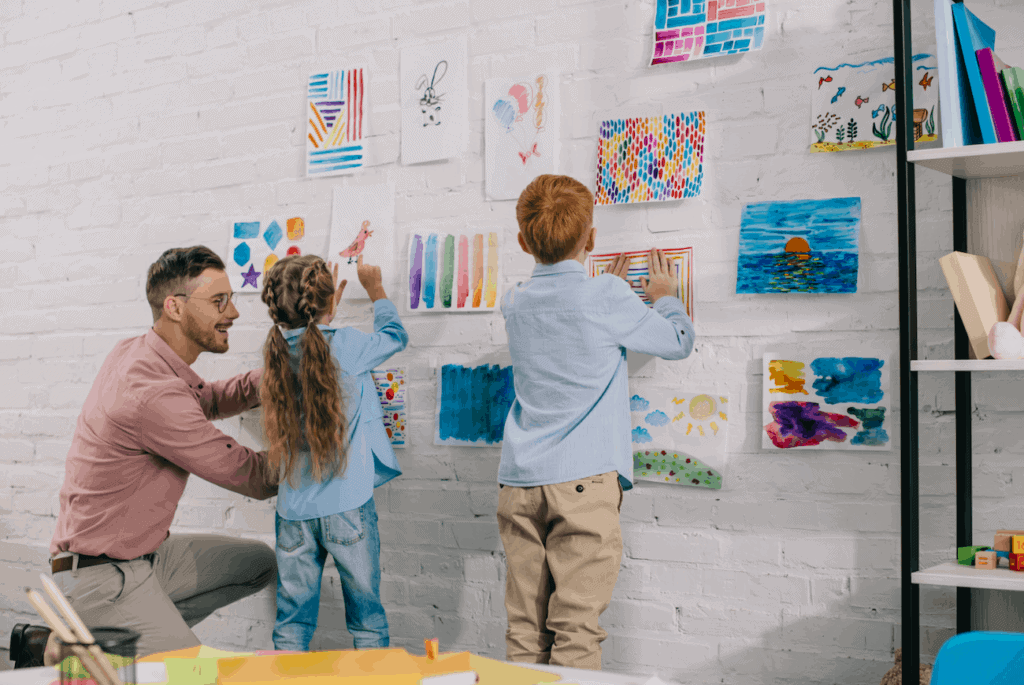
In a typical
While independent work allows children to develop self-motivation and concentration, it may not provide as many chances for social interaction and collaborative problem-solving.
However, it’s important to note that many
Additionally, multi-age classrooms in
By intentionally designing activities that require collaboration or offering group projects periodically, children can still develop essential social skills while maintaining the benefits of independent learning.
You can also play a role, as a parent, by encouraging extracurricular activities that encourage collaboration and teamwork (such as team sports, musical groups and clubs).
By recognizing the potential limitations and proactively incorporating collaborative experiences,
The Sometimes Challenging Transition to Traditional Schools
Montessori classrooms operate on a unique educational approach that fosters independence, self-paced learning, and individualized instruction.
The differences in classroom structure, teaching styles, expectations, and assessment methods can be jarring for students accustomed to a more self-directed learning environment.
Montessori kids may struggle adapting to a more rigid schedule, following directions from a single teacher, or meeting standardized testing requirements.
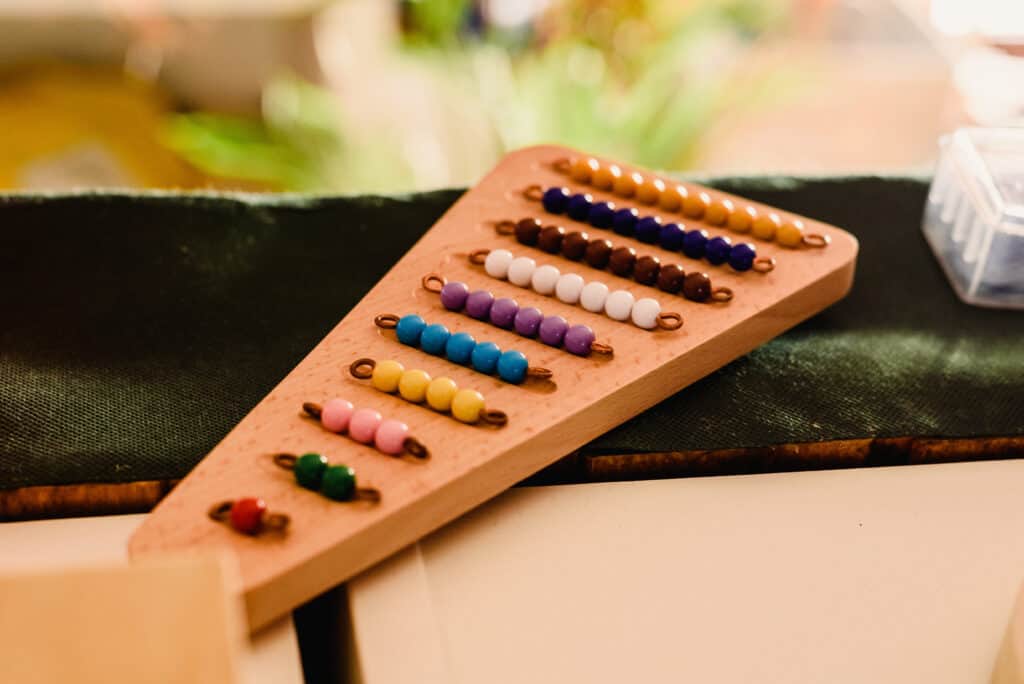
An example of this can be seen in the difference between math instruction in
In
It’s important for educators and families to provide support during this transition period. Teachers should be aware of the differences in instructional methods and offer guidance as students adjust. Parents can also play an active role by communicating with both the
It’s also worth noting that while there may be initial challenges, many students who have come from a
Cost and Accessibility of Montessori Schools
Unfortunately there are socioeconomic accessibility issues with
However, sadly data from the National Center for Montessori in the Public Sector (2014) indicated that less than 5% of all
However there is a lot of effort being made to increase the number of charter schools available.
The cost of education is often a limiting or deciding factor for parents. While
The average cost of
Do note, these figures are estimates as tuition costs can differ based on regional factors. For example, Montessori school tuition is typically higher in the Northeast region (upwards of $30,000 per year … Ouch) compared to the Midwest or Southeast.
However, despite the higher cost associated with
Inconsistent Application of Montessori Principles Across Schools.
Another concern is the inconsistent implementation of

While this did lead to the development and evolution of her work, it has also opened the door for misrepresentation and erroneous practices in some schools and classrooms.
You see, not all institutions strictly adhere to Dr. Maria
Adaptations in curriculum and practices can vary widely, leading to a lack of uniformity in the educational experiences provided under the name of “Montessori”.
For example, some schools do not have mixed age groups and do not provide extended blocks of time for the students to complete their work.
Impact of Teacher’s Qualification
Teacher quality drives learning outcomes in all educational institutions.
The
Montessori teachers undergo rigorous hands-on certification programs that equip them with a deep understanding of child development principles. They learn how to balance independent exploration and growth with offering guidance when needed.
Montessori certified professionals are brilliant at observing and responding to the unique needs and interests of each student.
The impact of qualified

Their profound understanding of
Collaboration between teachers and parents creates a cohesive approach to education that benefits the child holistically.
While the qualifications of
Furthermore, I’m sure you can attest that criticisms of teacher and school quality are not only a problem for
To wrap this section up. Whilst there are some inconsistencies in research findings, the benefits of
Criticisms of limited opportunities for collaboration, are a misunderstanding because collaboration is a natural result of mixed age groups, free ranging exploration of learning opportunities and general dynamics of the children’s house.
School and teacher quality is as inconsistent in
And sadly cost and accessibility issues can prevent children who would benefit greatly from a
Comparison: Montessori vs. Traditional Teaching
The debate between Montessori and traditional teaching methods has sparked discussions among parents, educators, and experts alike. To gain a deeper understanding of the pros and cons of the
The Prepared Environment:
Montessori classrooms: spaces are intentionally designed to suit individual needs, with simplicity and organization as guiding principles
Vs.
Traditional Classrooms: often involve long periods of sitting, listening to lectures, or working on worksheets.
It’s important to consider how your child thrives best and which environment aligns with their learning style.
Respect for Natural Development:
Montessori Education: recognizes each child’s unique interests and natural developmental pace
Vs.
Traditional Education: expects children to follow the same path, advance at the same rate, and focus on a standardized curriculum.
Reflecting on your child’s individuality and how they learn most effectively will play a crucial role in decision-making
Teaching Style:
Montessori teachers: act as guides rather than dictators in the classroom. They create order, encourage curiosity and independence, and observe how children handle tasks
Vs.
Traditional teachers: generally dispense knowledge and expect adherence to their instructions..
Reflecting on your child’s individuality and how they learn most effectively will play a crucial role in decision-making
Independence:
Montessori education: greatly values independence. Students are encouraged to work at their own pace and follow their interests.
Vs.
Traditional settings: Often enforce uniform lessons and pace, potentially stifling independence and creativity.
Considering whether your child thrives in a self-directed learning environment or requires a more structured framework can guide your decision-making process.
Learning Materials:
Montessori classrooms: specialized sensory materials such as wood, glass, and metal are commonly used to stimulate all the senses. Learning becomes hands-on, engaging students more fully with the materials.
Vs.
Traditional Classrooms: reliance on lectures, workbooks, textbooks, and testing is more prevalent.
Reflecting on your child’s learning style and how they engage with different materials can help identify which approach may be more beneficial.
Handling of Mistakes:
Montessor education: views mistakes as opportunities for learning. Through self-correcting materials, children learn to recognize their own mistakes and work towards mastery.
Vs.
Traditional settings: often reward perfection but may punish mistakes.
Thinking about how your child responds to making mistakes and whether they flourish in an environment that embraces growth mindset can be a valuable consideration.
Age Groups Vs Year Groups
Montessori schools: utilize age groups rather than grade levels solely determined by age. This multi-age grouping based on development promotes leadership among older children and encourages curiosity in younger students.
Vs.
Traditional settings: primarily relies on grade levels determined strictly by age.
Reflecting on how your child interacts with different age groups and benefits from peer relationships can influence your decision.
It’s important to remember that each child is unique and what works for one may not work for another.
The decision between
Researching local schools, visiting classrooms, speaking with educators, and gathering input from other parents can provide valuable insights that aid you in making a well-informed decision.
A Guide for Parents: Choosing between Montessori and Traditional Education
As parents, making decisions about our children’s education is no easy task. When it comes to choosing between
- Firstly, reflect on your child’s unique characteristics and needs.
Consider their personality traits, learning style preferences, strengths, and weaknesses. Some children thrive in independent, self-directed learning environments, while others require more structure and guidance. Understanding your child’s individuality will help guide you towards the most suitable educational approach. - Next, evaluate the philosophy of education that aligns with your values and goals…
for your child’s development.Montessori education emphasizes hands-on learning, independence, and fostering a love of learning. Traditional education often focuses on standardized curriculum and testing. Think about what core principles are essential for you and what type of educational experience you envision for your child. - Consider the learning environment that would be most conducive to your child’s growth.
Montessori classrooms are known for their prepared environment, simplicity, and orderliness. Traditional classrooms often involve more traditional teaching methods like lectures and worksheets. Reflect on which setting resonates with your child’s needs and whether they can thrive in a particular learning atmosphere. - Evaluate the resources and materials available in each educational approach.
Montessori classrooms usually provide specialized sensory materials to engage students in hands-on learning experiences. Traditional schools typically make use of textbooks, workbooks, and other traditional instructional resources. Reflect on how your child engages with different types of materials and sensory experiences to determine what suits them best. - Lastly, consider your practical constraints such as location, cost, and availability of options in your area.
Montessori schools may be less prevalent or have specific admission requirements, while traditional schools are generally more widely available. Weigh these practical considerations alongside the other factors discussed above to make an informed decision.
Remember that there is no one-size-fits-all answer when it comes to choosing an educational method for your child. What matters most is finding an approach that aligns with your child’s needs, nurtures their individuality, and supports their holistic development.
The most important activity is to take the time to research, visit schools, speak with educators, and gather insights from other parents to make the best decision for your child’s educational journey.
I hope the article was useful to you. Do reach out to me at [email protected], I would love to hear your feedback.
